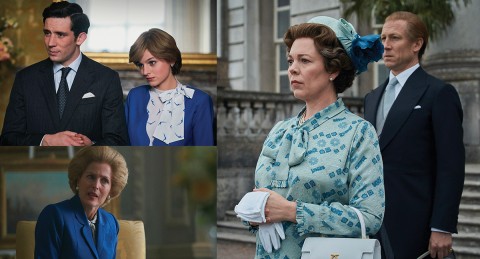Why The Crown is so fascinating to a world in perpetual crisis
As the series drifts, it mimics the drift of the monarchy itself—and of other institutions.

On a visit to London in February, I was approached by a documentary film crew interviewing people on the street about the royal family. Undeterred by my nationality and my ignorance about the current players and the details of the still-fresh “Megxit” drama, they asked whether I thought the monarchy ought to modernize and catch up to the times. Why would anyone want a modernized monarchy? I responded. American leaders are all caught up to the times, and it’s miserable.
I checked, and that comment didn’t make the final cut. One line from the interview remained: “I watch The Crown on Netflix.”
This show, the fourth season of which came out in November, has become a rather unlikely phenomenon. Created by Peter Morgan, who wrote the contemporary historical dramas The Queen and Frost/Nixon, The Crown covers roughly the first four decades of Queen Elizabeth II’s reign. It flits from major historical events to the minutiae of ritual and conduct to family drama to prolonged meditation on the changes in culture, duty, and the role of monarchy itself. It has apparently engaged a wide audience of royal watchers, costume drama fans, and history enthusiasts.




